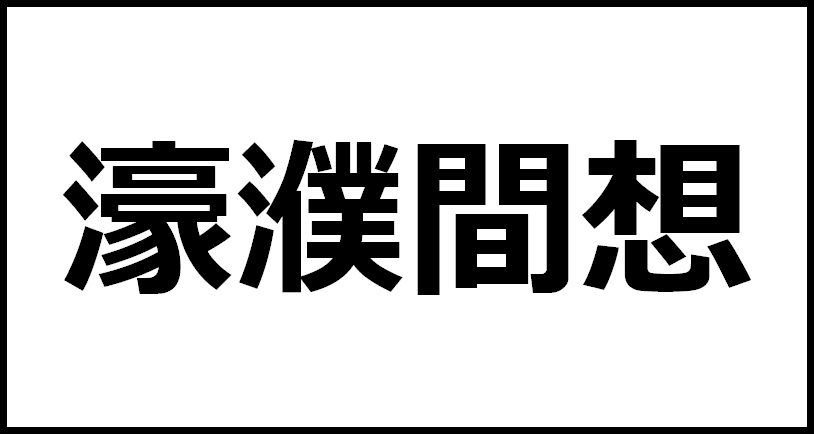濠濮間想について。四字熟語の濠濮間想の読み方や意味、英語や外国語での意味をまとめました。
濠濮間想について
濠濮間想の読み方・意味
| 四字熟語 | 濠濮間想 |
| 読み方 | ごうぼくかんのおもい |
| カタカナ読み | ゴウボクカンノオモイ |
| ローマ字読み | gobokukannomoi |
| 読みの文字数 | 10文字読みの四字熟語 |
| 頭文字 | 「ご」から始まる四字熟語 |
| 構成する文字 | ・想 ・濠 ・濮 ・間 |
| 意味 | 閑静な境地で世俗から離れて静かに暮らす心境のこと。荘子が濠梁で魚の遊ぶのを見て楽しみ、また、濮水で魚つりをして楚王の招きに応じなかった故事から。 |
濠濮間想の意味(外国語)
濠濮間想の外国語での意味をまとめました。
| 英語 | It is a state of mind to live quietly away from the world in a quiet state. Zhuangzi enjoys watching the fish play in the ditch and also fishing in the Pushui, but refuses to accept the invitation of the King of Chu. |
| スペイン語 | Es un estado mental vivir tranquilamente lejos del mundo en un estado tranquilo. Zhuangzi disfruta viendo jugar a los peces en la zanja y también pescando en Pushui, pero se niega a aceptar la invitación del Rey de Chu. |
| イタリア語 | È uno stato d’animo vivere tranquillamente lontano dal mondo in uno stato di quiete. A Zhuangzi piace guardare i pesci giocare nel fosso e anche pescare nel Pushui, ma rifiuta di accettare l’invito del re di Chu. |
| ポルトガル語 | É um estado de espírito viver tranquilamente longe do mundo em um estado tranquilo. Zhuangzi gosta de ver os peixes brincando na vala e também de pescar no Pushui, mas se recusa a aceitar o convite do Rei de Chu. |
| フランス語 | C’est un état d’esprit de vivre tranquillement loin du monde dans un état tranquille. Zhuangzi aime regarder les poissons jouer dans le fossé et aussi pêcher dans le Pushui, mais refuse d’accepter l’invitation du roi de Chu. |
| 中国語 | 在安静的状态下远离尘世,静静地生活,是一种心境。 庄子喜欢在沟里看鱼,也喜欢在朴水钓鱼,但拒绝接受楚王的邀请。 |
| 韓国語 | 한적한 경지에서 세속에서 멀리 조용히 사는 심경. 장자가 호량으로 물고기의 놀이를 보고 즐기고, 또, 준수로 물고기 낚시를 해 초왕의 초대에 응하지 않은 고사로부터. |


